As we mark the 20th anniversary of the US-led invasion and occupation of Iraq, I will be publishing several vignettes about my journey from being a weapons inspector to vocal opponent of US policy in the Middle East. I will start with a brief review of the documented record about my clash with then-Secretary of State Colin Powell over weapons of mass destruction in Iraq and the role of UN weapons inspectors in overseeing the disarmament of those weapons.
Excerpts of the Speech by former UN Weapons Inspector Scott Ritter to the Iraqi National Assembly, September 8, 2002
Thank you, Mr. President, and the members of the Iraqi National Assembly for giving me the opportunity to speak with you today.
I understand that I appear before you today not only as the first American citizen to address your body, but also as the first non-governmental speaker as well. And I thank you for providing me with this historical opportunity.
As you are well aware, we live in dangerous times with the threat of war looming on the horizon and the harsh reality of life without normalcy stalking your nation and indeed the entire Middle East on a daily basis for well over a decade.
I am here today to discuss this situation with you and share with you my own personal insights and observations as to how this situation might be improved. Before I continue, I would like to offer a word or two about why I am here today and what motivates me to speak before you and the people of Iraq in this manner.
For more than twelve years now, I have been involved with issues pertaining to Iraq. First as an officer of the United States Marine Corps participating in combat operations during the Gulf War of 1990-1991. And then, as a UN weapons inspector, a position which I served for nearly seven years from 1991 to 1998, and for the past five years as an advocate of truth in the search for a peaceful resolution to the problems that plague the relations between my country and yours. I appear to you as a private citizen of the United States of America. And while I have a great deal of respect and sympathy for the people of Iraq, I have a greater love for my own country and my people, which is why I am here.
My country seems on the verge of making a historical mistake, one that will forever change the political dynamic which has governed the world since the end of the Second World War; namely, the foundation of international law as set forth in the United Nations Charter, which calls for the peaceful resolution of problems between nations. My government has set forth on a policy of unilateral intervention that runs contrary to the letter and intent of the United Nations Charter.
The consequences of such action are not only dire in terms of their near-term consequences as measured by death, destruction and lost opportunities, but also the long-term global destabilization that will result in the rejection of an international law by the world's most powerful nation. As someone who counts himself as a fervent patriot and a good citizen of the United States of America, I feel I cannot stand by idly while my country behaves in such a fashion.
***
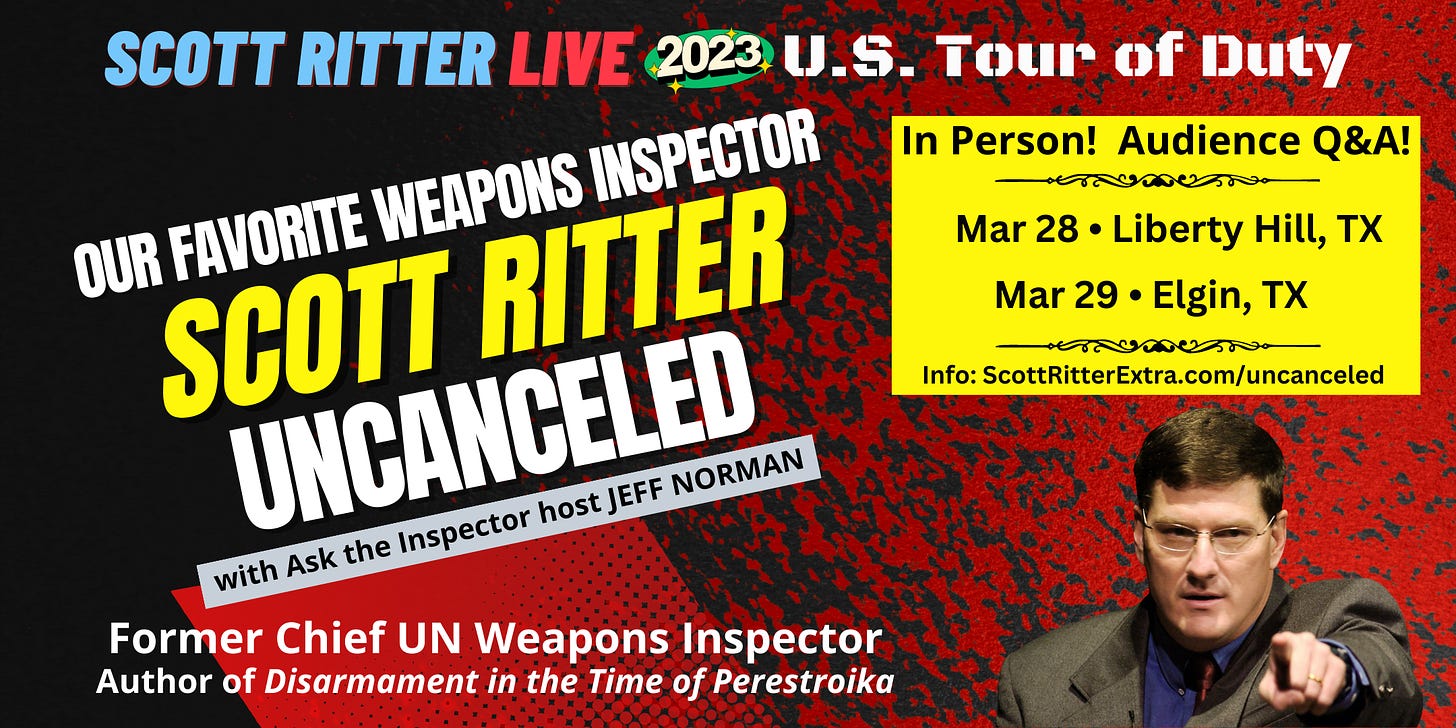
In the past decade there have been many mistakes made regards the interaction between Iraq, the United States and the United Nations. There is more than enough blame to spread around regarding this situation, including among the leaders of Iraq. But the focus on the errors of the past will not help move the current situation forward in a useful manner. Instead, we must concentrate on the present situation and how to get ourselves out of the dire situation we collectively face.
My government is making a case for war against Iraq that is built upon the rhetoric of fear and ignorance as opposed to the reality of truth and fact.
We, the people of the United States, are told repeatedly that we face a grave and imminent risk to our national security from a combination of past irresponsible behavior on the part of Iraq; ongoing efforts by Iraq to reacquire chemical, biological and nuclear weapons, as well as long-range ballistic missiles to deliver these so-called weapons of mass destruction, which have been banned since 1991 by a Security Council resolution; and Iraq's status as a state sponsor of terror, specially alleged links between Iraq and the forces of terror that perpetrated the horrific attack against the United States on September 11 of last year.
Let me make myself perfectly clear, if Iraq acts in an aggressive manner against one of its neighbors, launching an unprovoked attack against the territory of a sovereign state and if Iraq continues to possess weapons of mass destruction more than 10 years after the international community banned these weapons or if Iraq was any way involved in the attacks against the United States on September 11 of last year, then I would fully concur with those who said that Iraq is a rogue nation that represents a clear and present risk to international peace and security that must be dealt with harshly. Indeed, I would volunteer my services in such a struggle.
However, the rhetoric of fear that is disseminated by my government and others has not to date been backed up by hard facts that substantiate any allegations that Iraq is today in possession of weapons of mass destruction or has links to terror groups responsible for attacking the United States. Void of such facts all we have is speculation and there is no basis under international law for a nation to go to war against another nation based on speculation alone.
We are facing a crisis in America, where the politics of fear have clouded the collective judgment of the people of the United States to the point where we, unfortunately, are willing to accept at face value almost any allegation of wrongdoing on the part of Iraq without first demanding to know the factual basis of such an allegation.
***
[W]e must find a way to overcome the politics of fear and those who practice it. The best way to do this is to embrace the truth. In regards to the current situation between Iraq and the United States, truth is on the side of Iraq.
The truth of the matter is that Iraq today is not a threat to its neighbors and is not acting in a manner which threatens anyone outside of its own borders. When speaking of international law as set forth by the United Nations Charter it is impossible to come up with any scenario today that would justify military action against Iraq based upon its current behavior.
The truth of the matter is that Iraq has not been shown to possess weapons of mass destruction, either in terms of having retained prohibited capability from the past or by seeking to re-acquire such capability today.
There remain concerns as to the final disposition of Iraq's past proscribed weapons programs, but these concerns are almost exclusively technical in nature and do not overcome the reality that Iraq, during nearly seven years of continuous inspection activity by the United Nations, had been certified as being disarmed to a 90 to 95 per cent level, a figure which includes all of the factories used by Iraq to produce weapons of mass destruction, together with the associated production equipment, as well as the vast majority of the products produced by these factories.
The unaccounted-for material in itself does not constitute a viable weapons capability. And while the inability to achieve a final accounting is of concern and must be addressed, it is mitigated by the fact that for four years—from 1994 until 1998—the United Nations weapons inspectors monitored Iraq’s permitted industrial infrastructure with the most intrusive on-site inspections regime in the history of arms control and never once found any evidence of either retained prescribed capability or efforts by Iraq to reconstitute prohibited capability that had been eliminated by the inspectors. All of this was done with the full cooperation of Iraq.
The truth of the matter is that Iraq is not a sponsor of the kind of terror perpetrated against the United States on September 11, and in fact is active in suppressing the sort of fundamentalist extremism that characterizes those who attacked the United States on that horrible day.
This is the truth, and once the American people become familiar with and accept this truth, the politics of fear will be defeated and the prospect of war between our two countries greatly diminished.
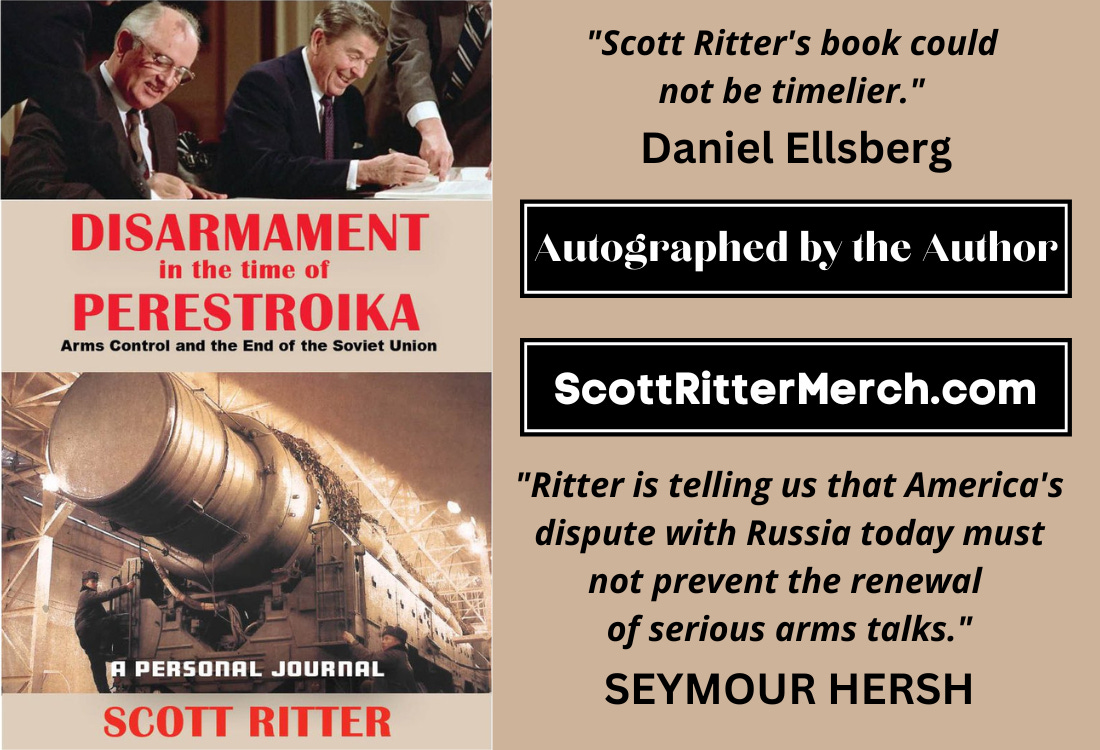
***
Iraq must show…the world that [it] does not possess weapons of mass destruction. Iraq must loudly reject any intention of possessing these weapons and then work within the framework of international law to demonstrate this as a reality. There is only one way that Iraq can achieve this; with the unconditional return of UN weapons inspectors, allowing such inspectors unfettered access to sites inside Iraq in order to complete the disarmament tasks as set forth in Security Council resolutions.
On this matter, Iraq has no choice. Any effort made by Iraq to block the return of inspectors and any conditions placed by Iraq on the work of the inspectors will only be used by those who seek to exploit the politics of fear by twisting these actions into the perception that Iraq somehow has something to hide and as such is a threat to international peace and security.
Let me be very clear. The only path towards peace that will be embraced by the international community is one that begins by Iraq agreeing to the immediate, unconditional return of UN weapons inspections, operating in full keeping with the mandate as set forth by existing UN Security Council Resolutions. Nothing else will be acceptable. Iraq cannot attempt to link the return of weapons inspectors with any other issues, regardless of justification. Unconditional return. Unfettered access. This is the only acceptable option.
***
This will not be an easy task and indeed the road towards the fulfilment of this goal is fraught with danger and difficulty. There are those who wish Iraq harm regardless of the circumstances or costs, and many of these currently reside in the government of the United States. However, I ask of you to keep in mind what I have shared with you regarding the people of the United States and their relationship with the American government. Once the politics of fear can be defeated by the forces of truth then the current policies of the United States can be replaced by those that reject confrontation and embrace reconciliation and peaceful coexistence.
Have confidence in the American people and the strength of American democracy. I know I do, which is the only reason why I am here before you today.
Thank you, Mr. President and the members of the Iraqi National Assembly for allowing me this opportunity to speak before you today.
Excerpt of the Interview of Secretary of State Colin Powell by Tony Snow, Fox News, September 8, 2002
MR. SNOW: All right. Scott Ritter is in Baghdad today. He addressed the Iraqi parliament, such as it is. I want to play a quote from him and then get your response:
“The rhetoric of fear that is disseminated by my government and others has not to date been backed up by hard facts that substantiate any allegations that Iraq is today in possession of weapons of mass destruction or has links to terror groups responsible for attacking the United States. Void of such facts, all we have is speculation.”
SECRETARY POWELL: We have facts, not speculation. Scott is certainly entitled to his opinion, but I’m afraid that I would not place the security of my nation and the security of our friends in the region on that kind of an assertion by somebody who is not in the intelligence chain any longer. There is no doubt in my mind that he does have capacity and he is trying to improve that capability and build upon that capability.
And it’s debatable as to how much and where it is and all sorts of questions can be raised, and they should be raised and should be debated. This is an important issue. But there can be no debate about the fact that he is in violation of the obligations he entered into at the end of the Gulf War. And if Scott is right, then why are they keeping the inspectors out? If Scott is right, why don't they say: “Anytime, anyplace, anywhere, bring them in. Everybody come in. We are clean”?
The reason is they’re not clean. And we have to find out what they have and what we're going to do about it. And that's why it's been the policy of this government to insist that Iraq be disarmed in accordance with the terms of the relevant UN resolutions, and we believe the best way to do that is with a regime change. And that's why that has been US policy, even though it's not United Nations policy.
Excerpt of a Letter from Iraqi Foreign Minister Naji Sabri to the United Nations Secretary General Kofi Annan, September 16, 2002
I am pleased to inform you of the decision of the Government of the Republic of Iraq to allow the return of the United Nations weapons inspectors to Iraq without conditions.
***
The Government of the Republic of Iraq has based its decision concerning the return of inspectors on its desire to complete the implementation of the relevant Security Council resolutions and to remove any doubts that Iraq still possesses weapons of mass destruction.
Excerpt from Facts and Fears: Hard Truths from a Life in Intelligence, by James Clapper, former Director of National Intelligence
We heard that Vice President Cheney was pushing the Pentagon for intelligence on Iraqi weapons of mass destruction, and then the order came down to NIMA [the National Imagery and Mapping Agency, which Clapper headed at the time] to find the WMD sites [original emphasis]. We set to work, analyzing imagery to eventually identify, with varying degrees of confidence, more than 950 sites where we assessed there might be WMDs or a WMD connection. We drew on all of NIMA’s skill sets…and it was all wrong.
On February 5, 2003, Secretary of State Colin Powell gave an impassioned, persuasive, and seemingly well-documented briefing to the United Nations in which he presented evidence of Iraq’s reconstituted chemical, biological and nuclear programs. To support his speech, NIMA had gone through the difficult process of declassifying satellite images of trucks arriving at WMD sites just ahead of the weapons inspectors to move materials before they could be found, and my team also produced computer-generated images of trucks fitted out as “mobile production facilities used to make biological agents.” Those images, possibly more than any other substantiation he presented, carried the day with the international community and Americans alike.
Excerpts from the Speech of Secretary of State Colin Powell before the United Nations Security Council, February 5, 2003
The material I will present to you comes from a variety of sources. Some are US sources. And some are those of other countries. Some of the sources are technical, such as intercepted telephone conversations and photos taken by satellites. Other sources are people who have risked their lives to let the world know what Saddam Hussein is really up to.
I cannot tell you everything that we know. But what I can share with you, when combined with what all of us have learned over the years, is deeply troubling.
What you will see is an accumulation of facts and disturbing patterns of behavior. The facts on Iraqis’ behavior—Iraq's behavior demonstrate that Saddam Hussein and his regime have made no effort—no effort—to disarm as required by the international community. Indeed, the facts and Iraq’s behavior show that Saddam Hussein and his regime are concealing their efforts to produce more weapons of mass destruction.
Let me begin by playing a tape for you. What you’re about to hear is a conversation that my government monitored. It takes place on November 26 of last year, on the day before United Nations teams resumed inspections in Iraq. The conversation involves two senior officers, a colonel and a brigadier general, from Iraq's elite military unit, the Republican Guard.
(AUDIO TAPE PLAYS) Speaking in Arabic.
Let me pause and review some of the key elements of this conversation that you just heard between these two officers. First, they acknowledge that our colleague, Mohamed ElBaradei [the Director General of the International Atomic Energy Agency], is coming, and they know what he’s coming for, and they know he’s coming the next day. He’s coming to look for things that are prohibited. He is expecting these gentlemen to cooperate with him and not hide things.
But they’re worried. “We have this modified vehicle. What do we say if one of them sees it?” What is their concern? Their concern is that it’s something they should not have, something that should not be seen.
The general is incredulous: “You didn’t get a modified. You don’t have one of those, do you?”
“I have one.”
“Which, from where?”
“From the workshop, from the al-Kindi company?”
“What?”
“From al-Kindi.”
“I’ll come to see you in the morning. I’m worried. You all have something left.”
“We evacuated everything. We don't have anything left.”
Note what he says: “We evacuated everything.” We didn’t destroy it. We didn’t line it up for inspection. We didn’t turn it into the inspectors. We evacuated it to make sure it was not around when the inspectors showed up.
“I will come to you tomorrow.” The al-Kindi company: This is a company that is well known to have been involved in prohibited weapons systems activity.
***
We also have satellite photos that indicate that banned materials have recently been moved from a number of Iraqi weapons of mass destruction facilities.
Let me say a word about satellite images before I show a couple. The photos that I am about to show you are sometimes hard for the average person to interpret, hard for me. The painstaking work of photo analysis takes experts with years and years of experience, poring for hours and hours over light tables. But as I show you these images, I will try to capture and explain what they mean, what they indicate to our imagery specialists.
Let’s look at one. This one is about a weapons munition facility, a facility that holds ammunition at a place called Taji. This is one of about 65 such facilities in Iraq. We know that this one has housed chemical munitions. In fact, this is where the Iraqis recently came up with the additional four chemical weapon shells.
Here, you see 15 munitions bunkers in yellow and red outlines. The four that are in red squares represent active chemical munitions bunkers.
How do I know that? How can I say that? Let me give you a closer look. Look at the image on the left. On the left is a close-up of one of the four chemical bunkers. The two arrows indicate the presence of sure signs that the bunkers are storing chemical munitions. The arrow at the top that says security points to a facility that is the signature item for this kind of bunker. Inside that facility are special guards and special equipment to monitor any leakage that might come out of the bunker.
The truck you also see is a signature item. It’s a decontamination vehicle in case something goes wrong.
This is characteristic of those four bunkers. The special security facility and the decontamination vehicle will be in the area, if not at any one of them or one of the other, it is moving around those four, and it moves as it needed to move, as people are working in the different bunkers.
Now look at the picture on the right. You are now looking at two of those sanitized bunkers. The signature vehicles are gone, the tents are gone, it’s been cleaned up, and it was done on the 22nd of December, as the UN inspection team is arriving, and you can see the inspection vehicles arriving in the lower portion of the picture on the right.
The bunkers are clean when the inspectors get there. They found nothing.
***
In this next example, you will see the type of concealment activity Iraq has undertaken in response to the resumption of inspections. Indeed, in November 2002, just when the inspections were about to resume this type of activity spiked. Here are three examples.
At this ballistic missile site, on November 10, we saw a cargo truck preparing to move ballistic missile components. At this biological weapons related facility, on November 25, just two days before inspections resumed, this truck caravan appeared, something we almost never see at this facility, and we monitor it carefully and regularly.
At this ballistic missile facility, again, two days before inspections began, five large cargo trucks appeared along with the truck-mounted crane to move missiles. We saw this kind of house cleaning at close to 30 sites.
Days after this activity, the vehicles and the equipment that I’ve just highlighted disappear and the site returns to patterns of normalcy. We don’t know precisely what Iraq was moving, but the inspectors already knew about these sites, so Iraq knew that they would be coming.
We must ask ourselves: Why would Iraq suddenly move equipment of this nature before inspections if they were anxious to demonstrate what they had or did not have? Remember the first intercept in which two Iraqis talked about the need to hide a modified vehicle from the inspectors. Where did Iraq take all of this equipment? Why wasn’t it presented to the inspectors?
***
One of the most worrisome things that emerges from the thick intelligence file we have on Iraq’s biological weapons is the existence of mobile production facilities used to make biological agents.
Let me take you inside that intelligence file and share with you what we know from eyewitness accounts. We have firsthand descriptions of biological weapons factories on wheels and on rails.
The trucks and train cars are easily moved and are designed to evade detection by inspectors. In a matter of months, they can produce a quantity of biological poison equal to the entire amount that Iraq claimed to have produced in the years prior to the Gulf War.
Although Iraq’s mobile production program began in the mid-1990s, U.N. inspectors at the time only had vague hints of such programs. Confirmation came later, in the year 2000.
The source was an eyewitness, an Iraqi chemical engineer who supervised one of these facilities. He actually was present during biological agent production runs. He was also at the site when an accident occurred in 1998. Twelve technicians died from exposure to biological agents.
***
A second source, an Iraqi civil engineer in a position to know the details of the program, confirmed the existence of transportable facilities moving on trailers.
A third source, also in a position to know, reported in summer 2002 that Iraq had manufactured mobile production systems mounted on road trailer units and on rail cars.
Finally, a fourth source, an Iraqi major, who defected, confirmed that Iraq has mobile biological research laboratories, in addition to the production facilities I mentioned earlier.
We have diagrammed what our sources reported about these mobile facilities. Here you see both truck and rail car-mounted mobile factories. The description our sources gave us of the technical features required by such facilities are highly detailed and extremely accurate. As these drawings based on their description show, we know what the fermenters look like, we know what the tanks, pumps, compressors and other parts look like. We know how they fit together. We know how they work. And we know a great deal about the platforms on which they are mounted.
As shown in this diagram, these factories can be concealed easily, either by moving ordinary-looking trucks and rail cars along Iraq's thousands of miles of highway or track, or by parking them in a garage or warehouse or somewhere in Iraq’s extensive system of underground tunnels and bunkers.
We know that Iraq has at least seven of these mobile biological agent factories. The truck-mounted ones have at least two or three trucks each. That means that the mobile production facilities are very few, perhaps 18 trucks that we know of—there may be more—but perhaps 18 that we know of. Just imagine trying to find 18 trucks among the thousands and thousands of trucks that travel the roads of Iraq every single day.
It took the inspectors four years to find out that Iraq was making biological agents. How long do you think it will take the inspectors to find even one of these 18 trucks without Iraq coming forward, as they are supposed to, with the information about these kinds of capabilities? Ladies and gentlemen, these are sophisticated facilities. For example, they can produce anthrax and botulinum toxin. In fact, they can produce enough dry biological agent in a single month to kill thousands upon thousands of people. And dry agent of this type is the most lethal form for human beings.
Excerpt from US Diplomatic Cable, DERISIVE RITTER SOUNDS OFF IN ABU DHABI, prepared by Charge d'Affaires Thomas Williams, February 8, 2003
Former UNSCOM inspector Scott Ritter found a largely receptive audience during a 2/8 lecture at the Zayid Center for Coordination and Follow-Up, an Arab League “research center” funded by UAE Deputy Prime Minister Shaykh Sultan Bin Zayid Al-Nahyan. Sultan attended the lecture, in a rare public appearance. Addressing the diplomatic and press corps, Ritter predictably derided the Secretary’s “smoke and mirrors” presentation, noting that the US, bent on regime change, is determined to undermine the inspections’ process. Ritter posited that as long as the US focus is on regime change, the international community must remain suspicious of US policy and all Americans assigned to inspection teams in Iraq should be considered intelligence agents. He described US Iraq policy as being part of a grander design aimed at regional transformation and took issue with what he characterized as our unilateralist approach. Ritter predicted a popular Iraqi uprising against a US occupation of Iraq, coupled with broader instability in the region which could result in the downfall of some Arab governments.
Newspaper Article, “Ex-UN inspector damns Powell report”, Sydney Morning Herald (Australia), February 9, 2003
Scott Ritter, a former senior UN weapons inspector in Iraq, has blasted US Secretary of State Colin Powell’s case for a US-led war on Baghdad as “smoke and mirrors” and nothing to do with reality.
Powell’s presentation to the UN Security Council on Wednesday was a “compelling case and sound argument” only for the unknowing, Ritter said in a lecture in Abu Dhabi, capital of the United Arab Emirates.
But for those with knowledge of the disarmament process, the report was nothing but “smoke and mirrors, nothing to do with reality (and) plain wrong,” Ritter said.
Putting satellite photos and tape recordings before a landmark meeting of the UN Security Council, Powell provided what he said was fresh evidence of Iraqi efforts to hide its weapons of mass destruction as he pressed the US case for tough action against Saddam Hussein.
“The purpose of the briefing was to destroy the inspection process,” Ritter said, arguing it was not in US interests to have inspections teams finding nothing on the ground as that could prevent the removal of Saddam Hussein, “which has overtaken disarmament as the primary goal in Iraq.”
Ritter questioned Powell's “improper” briefing on anthrax, in which he said UN experts estimated that Iraq could have produced 25,000 liters, saying stocks, if they did indeed exist, had gone well past their shelf life.
“Powell gave no substantive evidence” on alleged chemical weapons programs, said Ritter, a former intelligence officer in the US Marines who was once dubbed a “cowboy” by UN staff and diplomats in Baghdad for his intrusive inspection procedures.
Ritter also dismissed photographs and radio intercepts Powell offered as evidence to the Security Council.
“What he presented is not hard evidence…because the context, frequencies, history (of use) of the frequencies and who the individuals (talking) are must be known to ascertain whether they are relevant or not,” he said of the tape recordings.
The CIA had since November provided UN arms monitors with imagery of more than a dozen "suspect" sites, which proved upon inspection to be completely unrelated to weapons programs, Ritter added.
Ritter also cast doubt on the US administration’s policy of sourcing information from Iraqi defectors, whom he charged had sometimes been “pre-briefed” and were of “questionable veracity.”
Excerpt from a New York Times Op Ed by Colonel Lawrence Wilkerson, former Chief of Staff to Secretary of State Colin Powell, “I Helped Sell the False Choice of War Once. It’s Happening Again”
Fifteen years ago this week, Colin Powell, then the secretary of state, spoke at the United Nations to sell pre-emptive war with Iraq…
That effort led to a war of choice with Iraq — one that resulted in catastrophic losses for the region and the United States-led coalition, and that destabilized the entire Middle East…
As I look back at our lock-step march toward war with Iraq, I realize that it didn’t seem to matter to us that we used shoddy or cherry-picked intelligence; that it was unrealistic to argue that the war would “pay for itself,” rather than cost trillions of dollars; that we might be hopelessly naïve in thinking that the war would lead to democracy instead of pushing the region into a downward spiral.
The sole purpose of our actions was to sell the American people on the case for war with Iraq.


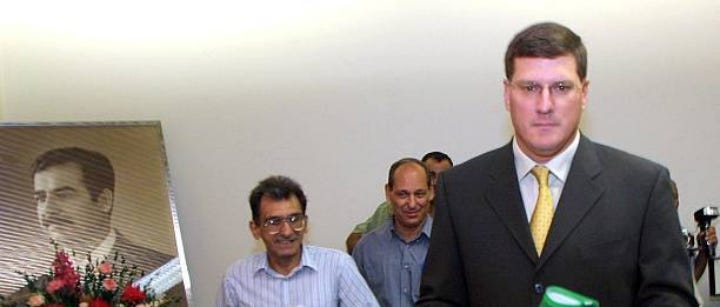


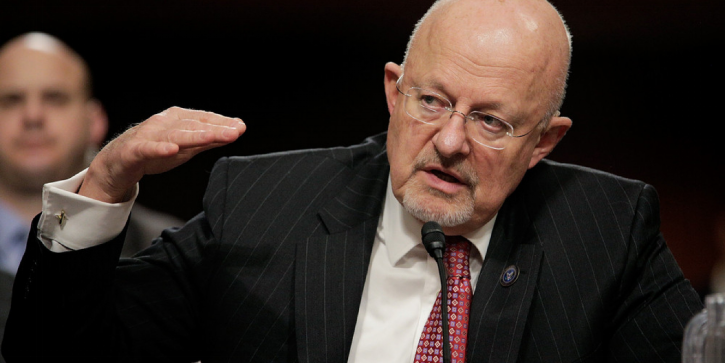
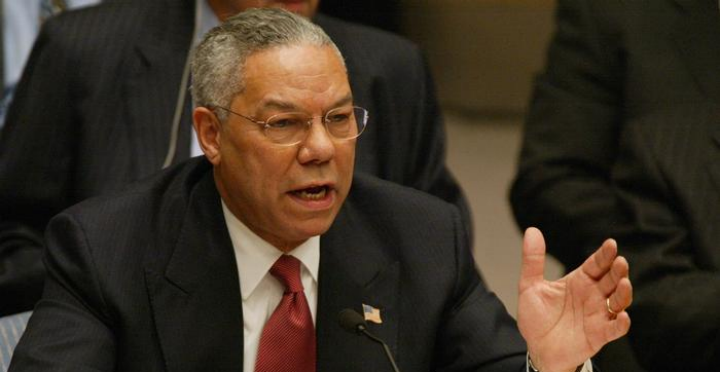
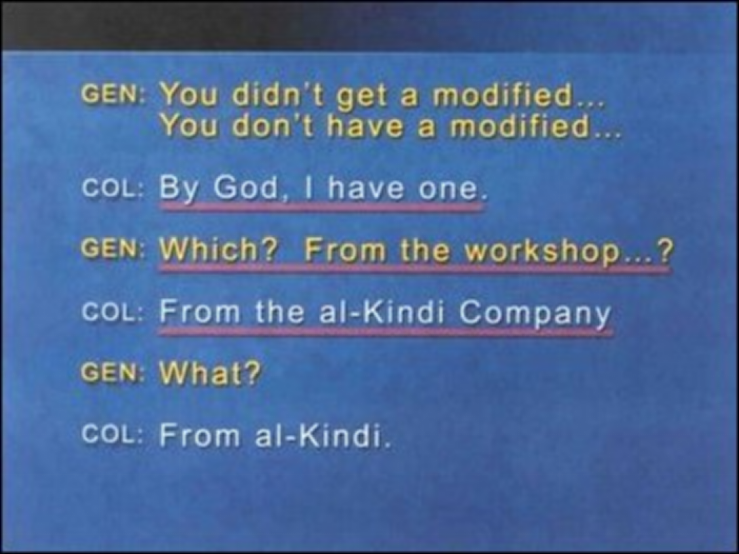
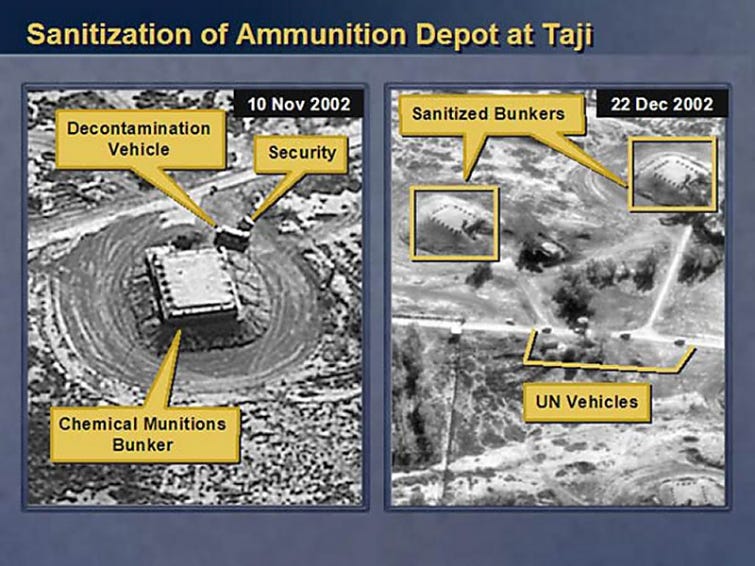
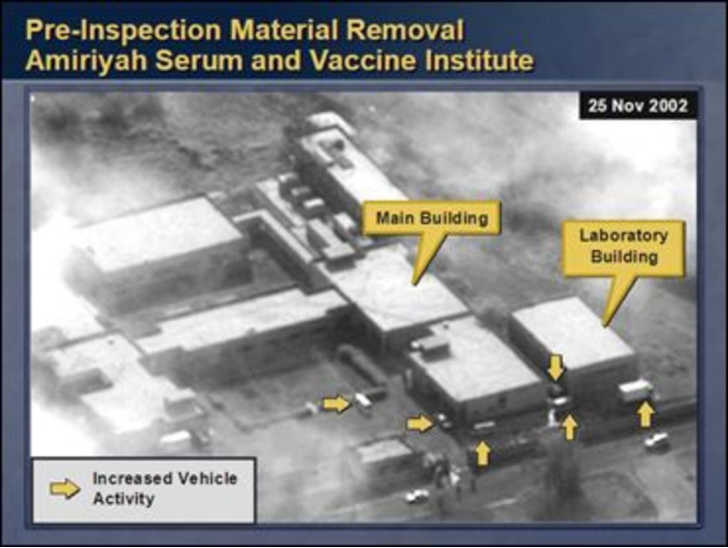
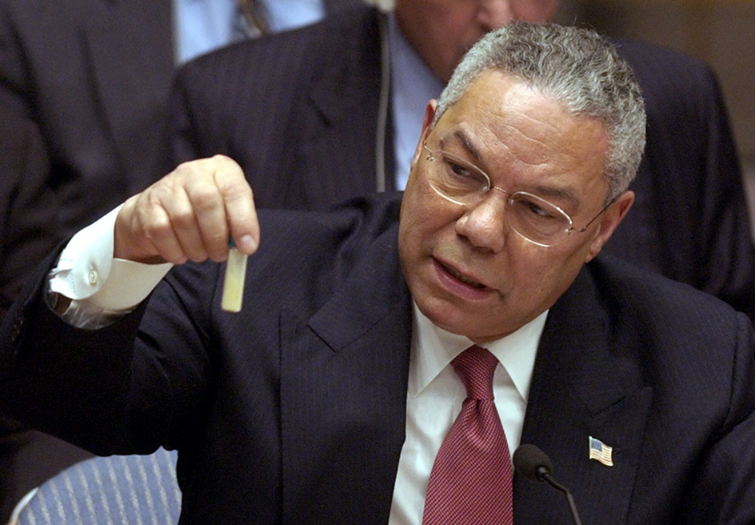
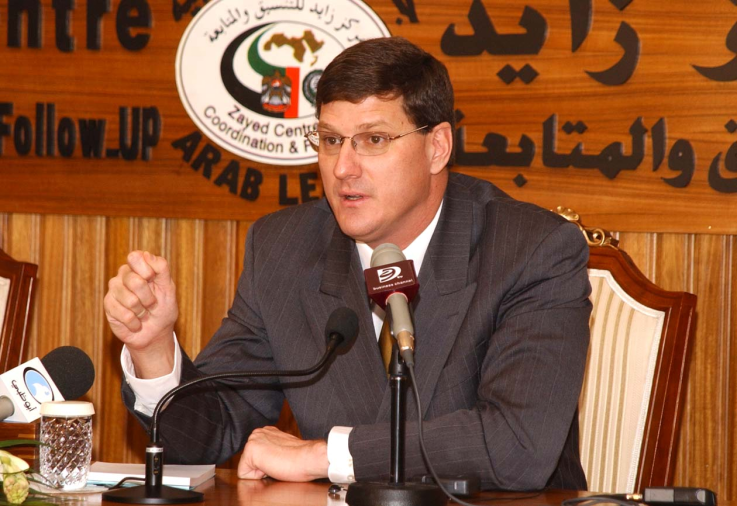
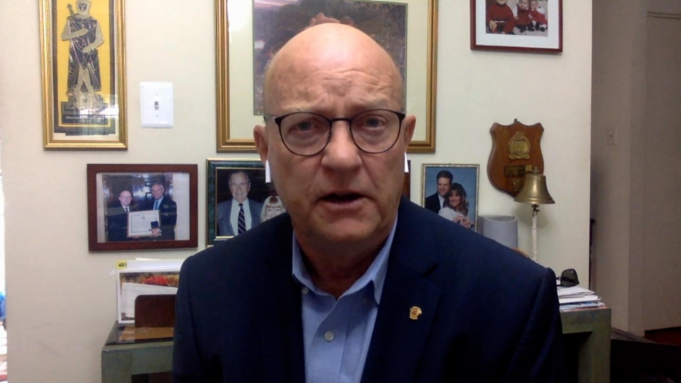
Of course, there is no easy way to prove a negative.
Looking back, it is especially hard to demonstrate a negative to a judge who is bound and determined in good faith or in bad faith to find otherwise.
The legacy of Troy's Cassandra is a bitter pill.